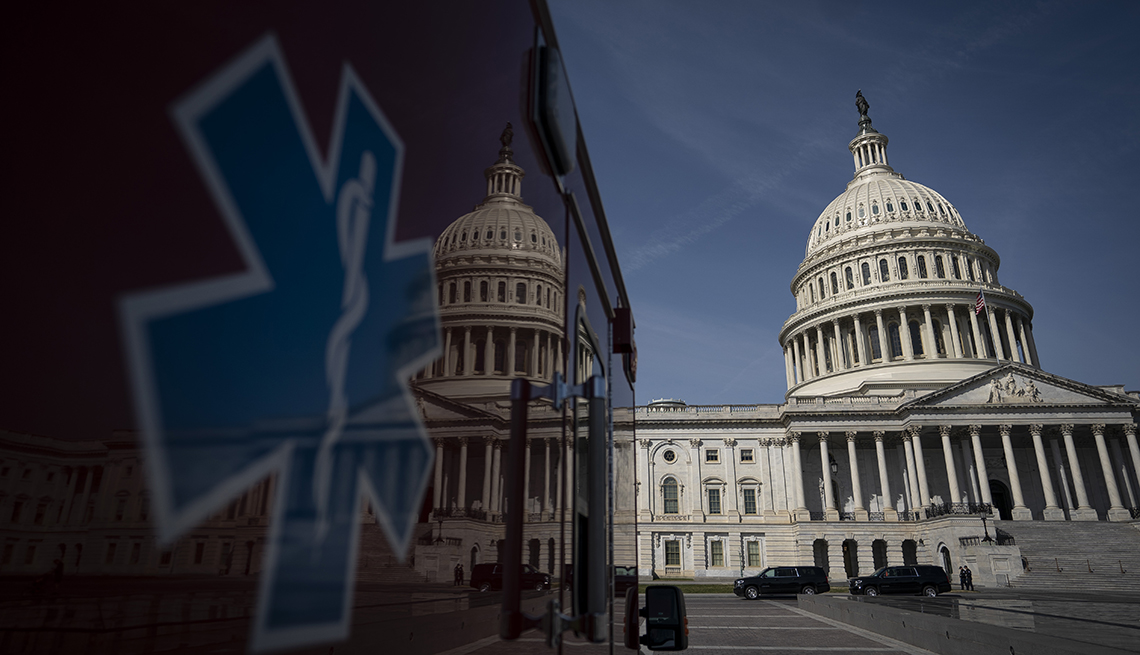AARP Hearing Center
Congress and President Trump enacted a broad, bipartisan $2.2 trillion economic stimulus law Friday afternoon designed to fight the nationwide financial impact of the coronavirus by sending many Americans $1,200 checks, increasing funding for unemployment benefits and offering small businesses money to pay their employees, among other benefits.
The president signed the stimulus law Friday after the House of Representatives passed the massive stimulus package with a voice vote just a few hours earlier. The Senate voted 96-0 Wednesday night to pass the Coronavirus Aid, Relief, and Economic Security (CARES) Act. Four senators were unable to vote because they had tested positive for the coronavirus or were quarantined at home out of caution that they may have been exposed to it. The CARES Act is now the largest emergency economic stimulus package in American history.
"On behalf of AARP's 38 million members and all older Americans nationwide, I thank the administration and leaders in Congress for their bipartisan work to address the unprecedented public health and economic crisis that faces our nation,” AARP CEO Jo Ann Jenkins said in a statement after the Senate vote. “Today older Americans, like Americans of all ages, worry about their families, their futures, their jobs and their retirement savings. Older Americans face the one-two punch of coronavirus's health and economic consequences, and many need immediate relief and ongoing help and support to cope with the pandemic. Those needs are only set to grow in the weeks and months ahead. That is why AARP supports the quick enactment of the bipartisan CARES Act."
What's included in the CARES Act
The law will address the wide-ranging financial impact of shutting down much of the nation to deter the spread of the coronavirus in the following ways:
Unemployment benefits
More than 3.2 million people filed new unemployment claims during just the week ending March 21, according to the U.S. Department of Labor. The CARES Act will create a new benefit, federal pandemic unemployment compensation, that Senate Minority Leader Charles Schumer (D-N.Y.) has described as “unemployment insurance on steroids.”
The law will make it easier for people who lost jobs due to coronavirus-related circumstances — because of their health or business or school shutdowns, for example — to qualify for benefits. It also will make them eligible for an additional $600 per week on top of what they will already qualify for in unemployment benefits from the state. People receiving coronavirus-related unemployment could collect benefits for up to 39 weeks. The benefit, which will be retroactive to Jan. 27, will also be available to so-called gig workers.



































































